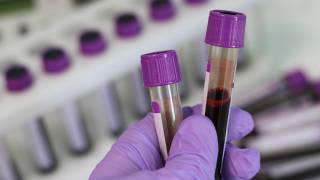Severe Acute Hepatitis Cases in Children Increase 41%

The World Health Organization (WHO) announced yesterday that since the previous Disease Outbreak News published on May 27, 2022, there have been 270 new probable severe acute hepatitis of unknown etiology in children cases, including from four new countries.
As of June 22, 2022, thirty-three countries in five WHO Regions have reported 920 probable cases since this global outbreak began in October 2021.
This data indicates a 41% increase during the last month.
The WHO says The actual number of cases may be underestimated, partly due to the limited enhanced surveillance schemes in place. The case count is expected to change as more information and verified data become available.’
Of these probable cases, 45 (5%) children have required transplants, and 18 related fatalities have been reported to WHO.
Epidemiological, clinical, laboratory, histopathological, and toxicological investigations of the cases' possible etiology (or aetiologies) are underway by several national authorities and research networks, across different working groups in WHO and with partners.
However, ‘the risk at the global level is currently assessed as moderate,’ stated the WHO on June 24, 2022.
Separately, the U.S. CDC published a Morbidity and Mortality Weekly Report - Interim Analysis of Acute Hepatitis of Unknown Etiology in Children Aged <10 Years, on June 24, 2022.
This CDC report stated that from October 1, 2021–June 15, 2022, 296 pediatric patients received a diagnosis of hepatitis of unknown etiology, with adenovirus detected among about 45%.
The preliminary analyses of these children (ave. 26 months) have not identified common exposures. About 56% had never attended a childcare facility or school.
However, current (10.2%) or past (26%) infection with the SARS-CoV-2 coronavirus was reported. And most of these children were not eligible for COVID-19 vaccination.
‘Current U.S. data do not suggest an increase in pediatric hepatitis of unknown etiology or percent positivity for adenovirus types 40/41 over baseline levels. However, the investigation is ongoing; further clinical data are needed to understand the cause of these cases and to assess the potential association with adenovirus,’ says the CDC.
Additionally, the United Kingdom Health Security Agency (UKHSA) continues to investigate and confirm cases of sudden onset hepatitis in children that have been identified since January 2022.
Since the UKHSA’s last update on June 17, 2022, active investigations have identified seven additional pediatric cases, bringing the total number in the UK to 258.
Of the confirmed cases, 183 are residents in England.
The UKHSA has published an epidemiological update #3 on the UK-wide investigations, which says, ‘While new cases continue to be identified across the UK, there is an overall decline in the number of new cases reported per week, even allowing for reporting lags.’
‘Cases pending classification are usually those in which laboratory testing to rule out known causes of hepatitis has not been completed.’
‘The leading hypotheses remain those which involve adenovirus; however, we continue to investigate the potential role of SARS-CoV-2 and work on ruling out any toxicological component.’
Additional acute hepatitis in children news is posted at PrecisionVaccinations.com/Acute.
PrecisionVaccinations publishes fact-checked, research-based news curated for mobile readership.
Our Trust Standards: Medical Advisory Committee
- WHO:Severe acute hepatitis of unknown aetiology in children - Multi-country
- CDC: Interim Analysis of Acute Hepatitis of Unknown Etiology in Children Aged < 10 years
- GOV.UK: Hepatitis (liver inflammation) cases in children – latest updates
- GOV.UK: Acute hepatitis: technical briefing
- ACUTE HEPATITIS CHILDREN
























